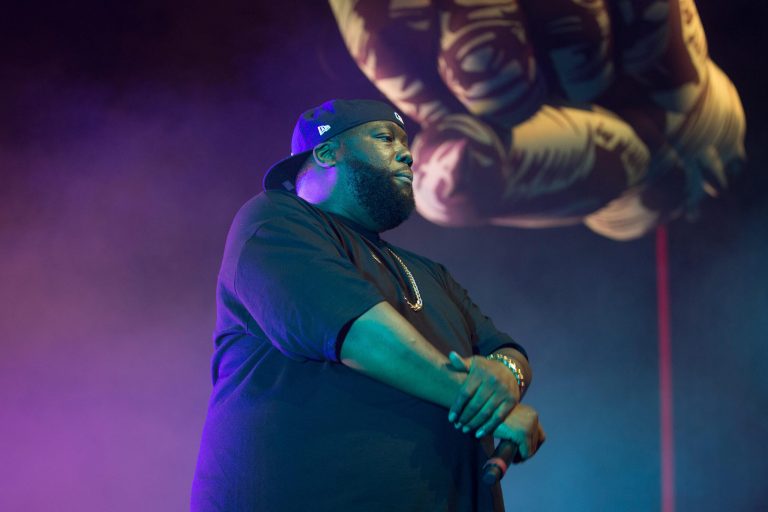Killer Mike just made massive headlines when he was arrested and detained at the Grammys, but speaking out on this incident hasn’t been the only time he’s made the news in the past month. He also spoke up about the government giving the marijuana industry to Black people.
Killer Mike was detained and subsequently released by the Los Angeles Police Department on the heels of his three wins at the 2024 Grammy Awards this past Sunday.
Mike, aka Michael Render, was handcuffed and escorted out by the police. Naturally, viral social media videos and coverage by The Hollywood Reporter came out right after the incident happened.
At the Grammys, Mike won for best rap song, best rap performance for “Scientists & Engineers,” and best rap album for Michael. The single features Andre 3000, Future, and Eryn Allen Kane.
During his win, he gave a gracious speech about accepting his awards. “We are incredibly proud and are basking in this moment,” he says.
The LAPD initially only shared that Mike was arrested and booked for “misdemeanor battery” at the awards show, but then, more information started to come to light. According to Killer Mike, an “overzealous” security guard forced him into the altercation that happened after his wins.
“I do want to note that last night, my team and I fielded a number of calls from concerned fans and colleagues wanting to know if I was OK. As you can imagine, there was a lot going on, and there was some confusion around which door my team and I should enter,” he says in an official statement. “We experienced an overzealous security guard, but my team and I have the utmost confidence that I will ultimately be cleared of all wrongdoing.”
A source in Killer Mike’s team adds: “We hit a speed bump in that Mike was detained and charged with a misdemeanor after collecting his awards. On the way into the venue, there was considerable confusion around where to go. He encountered an overzealous security guard and continued moving towards his destination. The situation has been overblown, but we are confident that the facts of the case, when laid bare, will show that Mike did not commit the alleged offense, and he will be exonerated.”
The security guard claims she was injured by Mike at her assigned door entrance when she asked for his tickets and directed him to a security checkpoint. He then allegedly pushed past her, injuring her and causing her to call for help and alert the authorities. She signed a citizen’s arrest for misdemeanor battery, received medical treatment, and was photographed by law enforcement.
The Friday before the grammys, Killer Mike was already in the spotlight for his comments on HBO’s Real Time With Bill Maher. Always an outspoken activist for both Black rights and cannabis, Killer Mike was not shy with his statements. He claimed that if Black folks had control over the U.S. cannabis industry, racial equity would be better.
Mike says, “With Native Americans, we gave them the casino industry. What about, you know, supermarkets?”
“Could Black people have the marijuana industry?” he adds. “Give us marijuana. Multibillion-dollar industry. It’s still fresh, it’s still growing.”
These comments are not surprising given Killer Mike’s radical yet valid view that, while people of color largely contributed to the world of legal cannabis, they are still disproportionately being incarcerated while white people are getting rich and running million-dollar companies.
In the past, he has spoken out against inequality for Black people, and he avidly supported Bernie Sanders’ 2016 presidential campaign. He also hosted the Netflix show Trigger Warning with Killer Mike in 2019, a documentary series about issues facing Black people. He has also spoken about the Black community at rallies and protests.
With this history of activism and speaking up for Black folks, it is no surprise that he is scrutinizing the cannabis industry today. As the recent years highlight, cannabis is becoming more and more normalized, with most U.S. states at least legalizing medical cannabis, and CBD and THC both taking a more front-and-center role in community discourse. And it’s certainly true that if more people of color were in positions of power in the industry, there would be more equity.
Ironically, his first Grammy win since 2003, when he won best rap performance by a duo or a group for “The Whole World” is not tainted by an incident that paints him as a criminal. At the time, he called out, “Sweep! Atlanta, it’s a sweep!” This was for his work with Run the Jewels, a group he performed in alongside producer El-P.
It was a sweep once again, but not one without the very conflict that he speaks out against daily in his activism. Hopefully, he and his friends and family will still be able to enjoy the win.
